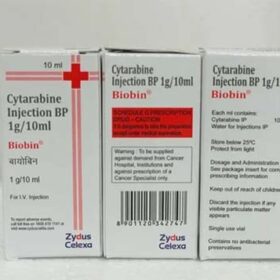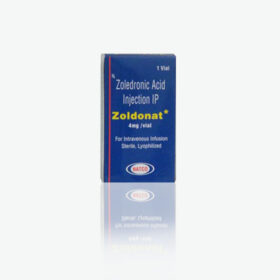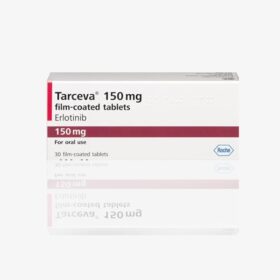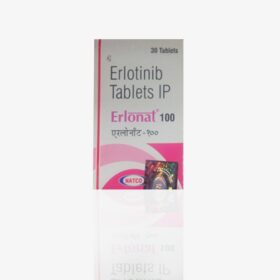- Your cart is empty
- Continue Shopping

Product
Introduction
Crizalk, with its active ingredient crizotinib, stands at the forefront of targeted therapies for certain types of cancer. Specifically designed to address cancers with alterations in the anaplastic lymphoma kinase (ALK) gene, Crizalk has demonstrated efficacy in improving outcomes for patients diagnosed with ALK-positive cancers. This description aims to provide a comprehensive overview of the characteristics, clinical applications, and considerations associated with Crizalk 250mg capsules.
Mechanism of Action
Crizalk operates as a tyrosine kinase inhibitor, with its primary target being the ALK gene and the ROS1 protein. By inhibiting these signaling pathways, Crizalk disrupts the growth and proliferation of cancer cells that carry ALK gene alterations, ultimately impeding tumor progression.
Clinical Applications
- ALK-Positive Non-Small Cell Lung Cancer (NSCLC): Crizalk is indicated for the treatment of advanced or metastatic NSCLC in patients whose tumors harbor ALK gene rearrangements. It is particularly effective in cases where standard chemotherapy may not be the optimal choice.
- ROS1-Positive NSCLC: Beyond ALK-positive NSCLC, Crizalk has demonstrated efficacy in the treatment of NSCLC with ROS1 gene alterations, further expanding its therapeutic reach.
Dosage Forms and Strengths
Crizalk is commonly available in oral capsule form, with each capsule containing 250mg of crizotinib. The prescribed dosage is determined by the treating oncologist based on individual patient factors and the specific cancer being treated.
Characteristics and Considerations
- Precision Medicine: Crizalk exemplifies the paradigm of precision medicine, tailoring treatment to the genetic characteristics of the cancer. It specifically targets the abnormal ALK and ROS1 proteins without affecting normal cells, minimizing collateral damage to healthy tissues.
- Regular Monitoring: Ongoing monitoring is crucial during Crizalk therapy to assess treatment response, manage potential side effects, and make any necessary adjustments to the treatment plan.
- Common Side Effects: Adverse effects associated with Crizalk may include visual disturbances, gastrointestinal symptoms, fatigue, and edema. These side effects are generally manageable with appropriate medical guidance.
- Drug Interactions: Crizalk may interact with other medications, and patients should inform their healthcare providers about all drugs, including over-the-counter medications and supplements, to avoid potential interactions.
- Pregnancy and Fertility: Crizalk may pose risks to the developing fetus, and patients are advised to use effective contraception during treatment. The impact of Crizalk on fertility should also be discussed with healthcare providers.
Conclusion
Crizalk, featuring crizotinib as its active component, represents a transformative advancement in the treatment of ALK-positive cancers, particularly NSCLC. Its targeted approach underscores the evolution of cancer therapy toward precision medicine, improving efficacy while minimizing side effects. As with any cancer treatment, the decision to use Crizalk involves careful consideration of individual patient factors, ongoing monitoring, and open communication between patients and healthcare providers. Crizalk stands as a beacon of hope for individuals facing ALK-positive cancers, offering a pathway to more effective and personalized cancer care.














Reviews
There are no reviews yet.